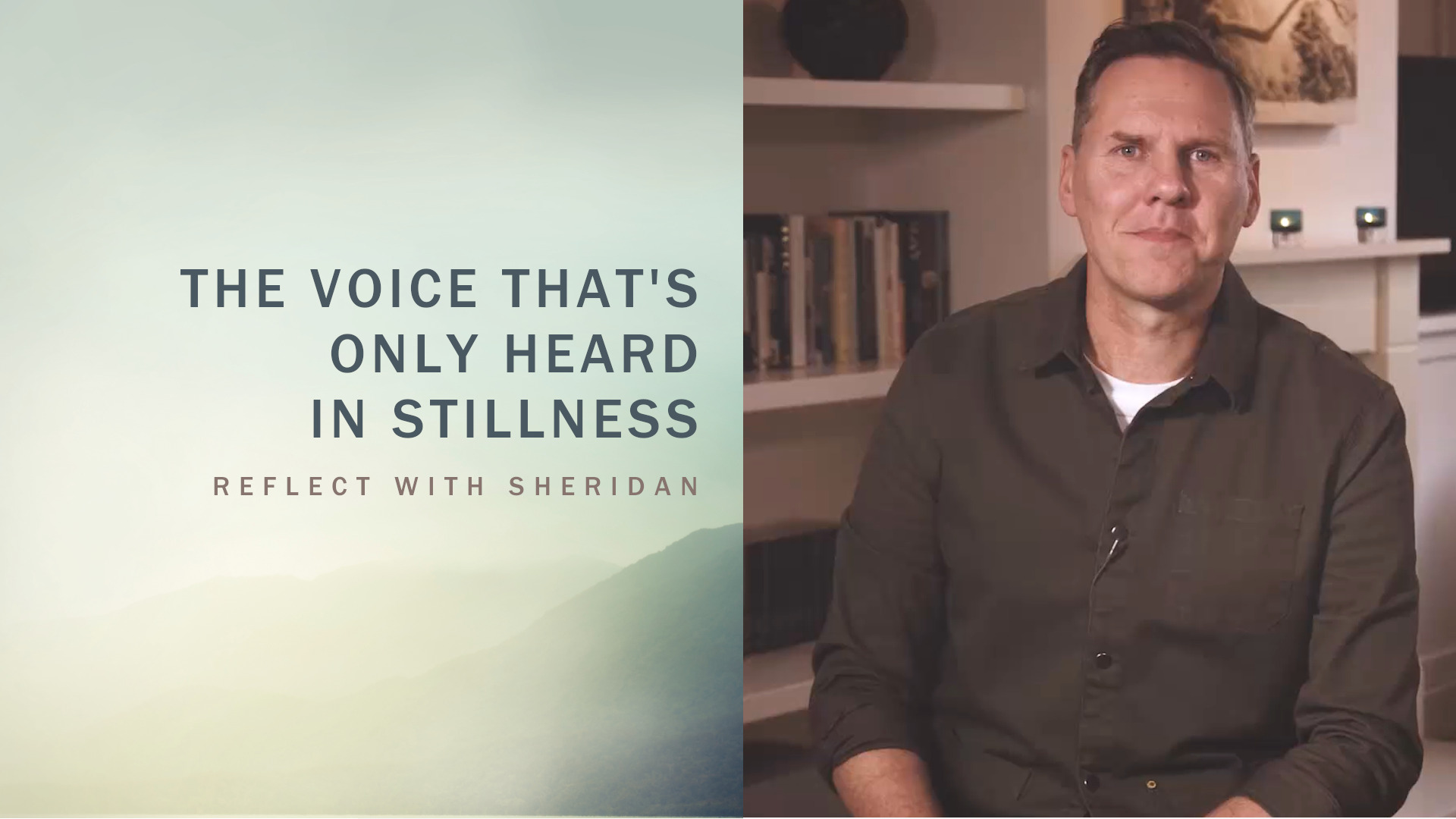058 How to Hear God’s Voice – Three Keys
Each of us has some important decisions to make over the course of our lives. Should we marry? If so, who? Should we take that new job? Move cities? Which career path should we choose? If we believe there is a God who is interested in our lives and wants to guide these decisions, we have more questions to ask: How does God speak? What ways does he use? And how can we be sure it’s really his voice we’re hearing?
I want to explore this over the next couple of posts and podcasts. God speaks to us in a variety of ways and the three lessons that follow will help get us started hearing him.
Listen Now
Three Important Lessons
Lesson 1: God speaks to those who are in a position to hear him
The Old Testament story of Samuel has so much to say about listening to God today. Young Samuel is sleeping in the tabernacle (an early type of temple). As biblical scholars tell us, the location is significant. In the ancient world one hoped to discover God’s plans by sleeping where God was thought to dwell. Samuel wants to hear from God.
Lesson 2: God speaks in ways we’ll understand
Samuel is woken by a voice calling his name: “Samuel!” Notice that he recognises the words being spoken. The voice isn’t speaking Italian, Swahili, or the language of angels, but Samuel’s own tongue. It is a “human” voice he hears. Samuel even mistakes it as the voice of Eli the priest, who he goes running to.
Lesson 3: We need others to help us discern God’s voice
Samuel hears the voice call again: “Samuel!” Again he runs to Eli, and again Eli tells him he’s mistaken and should return to sleep. Samuel had been dedicated to God as a baby and according to the story, already serves in the temple. But he “doesn’t yet know the Lord”. He doesn’t recognise this voice as being God’s voice. Only when the mysterious experience happens a third time does Eli realise it is God who is speaking. He then guides Samuel in how to respond: “if someone calls again, say, ‘Speak, Lord, your servant is listening’”.
A Posture of Listening

If God speaks to those in a position to hear him, are we in such a position? Often I’m not. Too often I run through my day, busy and rushed, leaving little room for listening to God. Often my heart is too full to hear God’s voice—too full of worries and dreams and plans and ideas; too full of Facebook, Twitter and social media chatter; too full of books, TV and radio. Too full of noise.
How do we develop a posture of listening? By finding a place to listen. Samuel slept in the tabernacle. Moses met God in the Tent of Meeting. Elijah waited on the mountaintop for the ‘still small voice’. Jesus prayed in the hills each morning. Where’s your tabernacle, your Tent of Meeting, your solitary place? I suggest you:
Create a place inside
Set aside a room, a chair, or some other place designated as your prayer space that is free of the symbols of daily demands.
Find a place outside
Find a chair in a quiet park, a secluded place in the countryside, a retreat centre, or some other place you know you’ll be undisturbed.
These places can become your inner sanctum, your Holy of Holies, the place where you spend undistracted, unhurried time with God in a listening posture.
An Intelligible Voice
God spoke to Samuel in ways he understood. The technical term for this is ‘divine accommodation’. The Almighty, irrepressible, unfathomable God funnels the immense ocean of his knowledge and vocabulary into a tiny trickle of words and ideas that are intelligible to us. He accommodates his communication to our level of understanding. Isn’t that gracious of him? Isn’t that humble?
A beautiful illustration of this is the story of Golon Kabule, which I tell in Unseen Footprints. God spoke to Golon using words and images Golon understood, and he will do that to us too. To the musician God writes a song, to the mathematician he sends an equation. God speaks in ways we’ll get.
Not that he’s always easy to understand. And there’s always the potential for us to misinterpret him. That’s why we need to apply the third lesson and get…
The Confirmation of Others
Samuel heard God’s voice but didn’t recognise it. Eli had to point it out. Whether it’s recognising God’s voice or interpreting what he says, we need mature men and women of God to help us confirm it’s God’s voice we’ve heard and not our own thoughts or subconscious desires. Don’t make major decisions alone. If you feel you’ve heard from God about something, check it out with a mature Jesus-follower.
Learn More
 | I’ve drawn these ideas from my devotional book Resilient, which includes a whole section on understanding God’s voice and finding guidance. |





